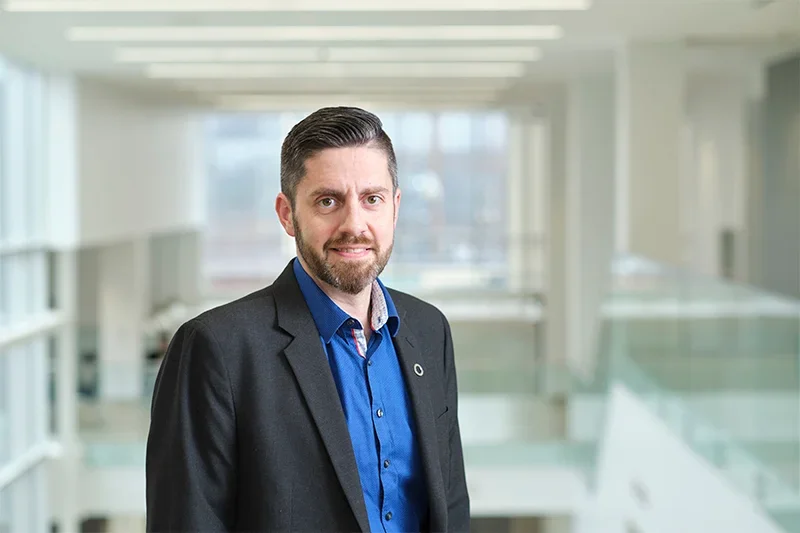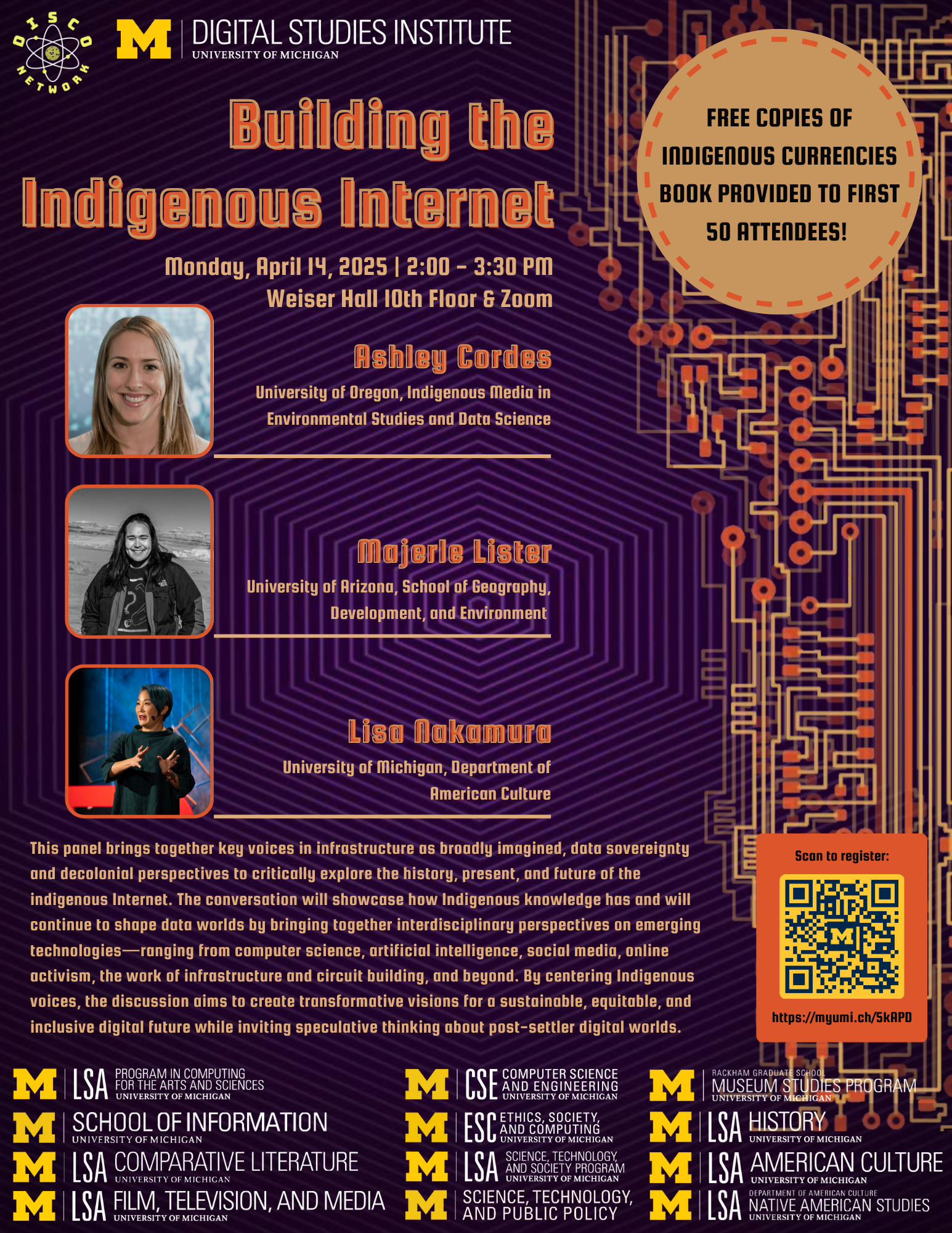Presented By: Biomedical Engineering
Biomedical Engineering Seminar Series
Brain-Computer Interfaces for People with Paralysis, with Matthew Willsey, Ph.D.

Brain-Computer Interfaces for People with Paralysis
Abstract:
Presently, those suffering from tetraplegia after an injury or illness have little hope for significant motor restoration. Brain-computer interfaces (BCIs) have shown tremendous promise for controlling robotic arms and computer tablets as well as restoring somatosensory function. Dr. Willsey’s work focuses on developing an entry level brain-computer interface to help restore motor function for people with paralysis.
The seminar covers the basic principles of BCI technology, available recording systems (e.g., electroencephalography, electrocorticography, and microelectrode arrays), and controllable effectors, along with development of a state-of-the-art decoder. The talk will also describe a state-of-the-art decoder, used to translate neural activity into a control signal for external devices. Specifically, this temporally convolved neural network decoder, which incorporated a time series of neural data into the decoding algorithm, allowed the simultaneous movement of 3 finger groups, of which the thumb moves in 2D, and acquired 76 finger targets per minute. Furthermore, a human participant with tetraplegia controlled a virtual quadcopter navigating a ringed obstacle course in a physics-based simulation using these decoded finger movements. Finally, Dr. Willsey will review several new companies that are commercializing BCI technology in early clinical trials and discuss the current challenges in translating BCIs for eventual human use.
Bio:
Matthew attended MIT where he received B.S. and M.Eng. degrees in Electrical Engineering with a research focus in digital signal processing. He later attended medical school at Baylor College of Medicine and completed his neurosurgery residency at the University of Michigan in 2022. He completed a PhD in Biomedical Engineering during his 2-year resident research time plus an additional leave-of-absence year. His research focused on intracortical brain-computer interfaces, computational neuroscience, and neuromodulation. After graduation, he completed a one-year, post-graduate appointment as a clinical instructor stereotactic/functional neurosurgery and epilepsy at Stanford University where he conducted research in the Neural Prosthetics Translational Lab directed by Dr. Jaimie Henderson.
He is currently an assistant professor of neurosurgery and biomedical engineering at the University of Michigan and is core faculty in the neural engineering cluster of the Biointerfaces Institute and a Michigan Neuroscience Institute affiliate. His research interests include brain-computer interfaces, neuromodulation (deep brain stimulation and spinal cord stimulation), and computational neuroscience. He currently directs a human BCI research lab (https://www.willseylab.org/home) focused on expanding the functionality and stability of present-day BCIs.
His clinical interests include deep brain stimulation, epilepsy, MR-guided focused ultrasound, pain.
Zoom: https://umich.zoom.us/j/94337625486
Abstract:
Presently, those suffering from tetraplegia after an injury or illness have little hope for significant motor restoration. Brain-computer interfaces (BCIs) have shown tremendous promise for controlling robotic arms and computer tablets as well as restoring somatosensory function. Dr. Willsey’s work focuses on developing an entry level brain-computer interface to help restore motor function for people with paralysis.
The seminar covers the basic principles of BCI technology, available recording systems (e.g., electroencephalography, electrocorticography, and microelectrode arrays), and controllable effectors, along with development of a state-of-the-art decoder. The talk will also describe a state-of-the-art decoder, used to translate neural activity into a control signal for external devices. Specifically, this temporally convolved neural network decoder, which incorporated a time series of neural data into the decoding algorithm, allowed the simultaneous movement of 3 finger groups, of which the thumb moves in 2D, and acquired 76 finger targets per minute. Furthermore, a human participant with tetraplegia controlled a virtual quadcopter navigating a ringed obstacle course in a physics-based simulation using these decoded finger movements. Finally, Dr. Willsey will review several new companies that are commercializing BCI technology in early clinical trials and discuss the current challenges in translating BCIs for eventual human use.
Bio:
Matthew attended MIT where he received B.S. and M.Eng. degrees in Electrical Engineering with a research focus in digital signal processing. He later attended medical school at Baylor College of Medicine and completed his neurosurgery residency at the University of Michigan in 2022. He completed a PhD in Biomedical Engineering during his 2-year resident research time plus an additional leave-of-absence year. His research focused on intracortical brain-computer interfaces, computational neuroscience, and neuromodulation. After graduation, he completed a one-year, post-graduate appointment as a clinical instructor stereotactic/functional neurosurgery and epilepsy at Stanford University where he conducted research in the Neural Prosthetics Translational Lab directed by Dr. Jaimie Henderson.
He is currently an assistant professor of neurosurgery and biomedical engineering at the University of Michigan and is core faculty in the neural engineering cluster of the Biointerfaces Institute and a Michigan Neuroscience Institute affiliate. His research interests include brain-computer interfaces, neuromodulation (deep brain stimulation and spinal cord stimulation), and computational neuroscience. He currently directs a human BCI research lab (https://www.willseylab.org/home) focused on expanding the functionality and stability of present-day BCIs.
His clinical interests include deep brain stimulation, epilepsy, MR-guided focused ultrasound, pain.
Zoom: https://umich.zoom.us/j/94337625486



